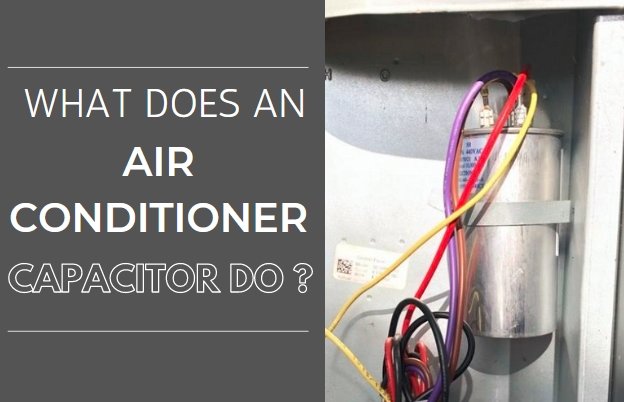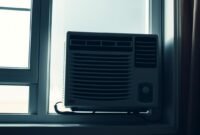You probably have got to the point of realizing that an AC system is a complex one. It’s tricky and covers intricate small parts that need to work together to perform well.
A capacitor is one of those crucial parts to get your unit going. In fact, without it, don’t expect your device to run and perform well. So, what should you know about this part?
What Does an Air Conditioner Capacitor Do?
Similar to a battery, a capacitor stores and releases energy; however, unlike a battery, a capacitor delivers a quick jolt of electricity. This initial surge powers the motor of your air conditioner, allowing it to start up efficiently.
Personal experience as an HVAC technician has shown that this sudden burst of power is crucial for reliable operation, especially during the hottest summer months when your AC is running at peak capacity.
Once your air conditioner is up and running, the capacitor’s role shifts to providing a steady, reduced amount of current to keep the system operating smoothly. It ensures consistent power to maintain the cooling cycle, which is vital for preventing short cycling—a common issue observed in units with failing capacitors.

The AC capacitor location depends on the AC system’s type. Some units may be placed close to the condenser unit (within the compressor), but some may be placed on the ground or even mounted on walls. It is two plates of metal separated by a somewhat dielectric material.
When the unit applies a voltage, the electric field is created, storing energy within electrostatic charge form. This energy can be sent or released whenever assistance is needed to power the unit.
Capacitor Types
Understanding the different types of capacitors is key to grasping their function. Air conditioners typically use start and run capacitors, or sometimes a dual capacitor that combines both functions. As a professional in the field, I have often found dual capacitors to be more efficient, as they save space and are easier to replace during maintenance.
The start capacitor is mostly needed when the AC unit first starts because the unit needs the biggest energy. The motor torque needs a bit of energy boost to run, which is what the start capacitor is all about.
After the motor runs, it’s time for the run capacitor to do its job. Its main responsibility is to keep the AC system running smoothly. It ensures that the electric current is consistent and proper when running through the system so the AC doesn’t stop in the middle of its operation.
When the capacitors are at fault, there are some obvious signs. If it’s the start capacitor, you may hear it humming without starting up. If it’s the run capacitor, the system may start but cycle off before the proper time.
Field experience reveals that common causes of capacitor failure include overheating, power surges, and even lightning strikes. For instance, during a service call, I encountered a capacitor damaged by a short circuit caused by debris after a storm, a scenario that could have been prevented with timely maintenance and surge protection.
What Happens When Capacitor Goes Out on AC?
Some signs suggest that your capacitor needs replacing:
- Warm air. If the AC runs but blows out warm air instead of cold air, your capacitor is probably bad. Because the compressor can’t start, the AC can’t remove heat by transferring it outside.
- Humming noise. When the capacitor is faulty, the compressor must work harder than the average ability. No wonder if it produces humming noise, which comes from the condenser unit’s access panel.
- Burning smell. If you smell any burning scent, it’s most likely that your capacitor is bad. The compressor won’t run properly, so the unit won’t be able to cool off the house effectively.
- The AC suddenly turns off. Be aware that your unit turns off suddenly. Because the capacitor is bad, the AC suddenly shuts down.
| Symptom | Possible Cause | Recommended Action |
|---|---|---|
| Warm air from vents | Failed start capacitor | Replace capacitor |
| Humming noise | Overloaded motor due to faulty capacitor | Diagnose and replace capacitor |
| AC randomly shuts off | Inconsistent power delivery from capacitor | Inspect and replace as needed |
| High energy bills | Increased load on system due to capacitor | Evaluate capacitor and system efficiency |
Read also: How Much Does Replace an Air Conditioner Capacitor Cost?
Final Words
Some people say that the life expectancy of the capacitor is around 10 years, while others say that it may go up to 20 years. However, if you can’t maintain your unit carefully, your capacitor won’t be able to last for such a long time. If you have to wonder what does an air conditioner capacitor do, now you know the answer.


